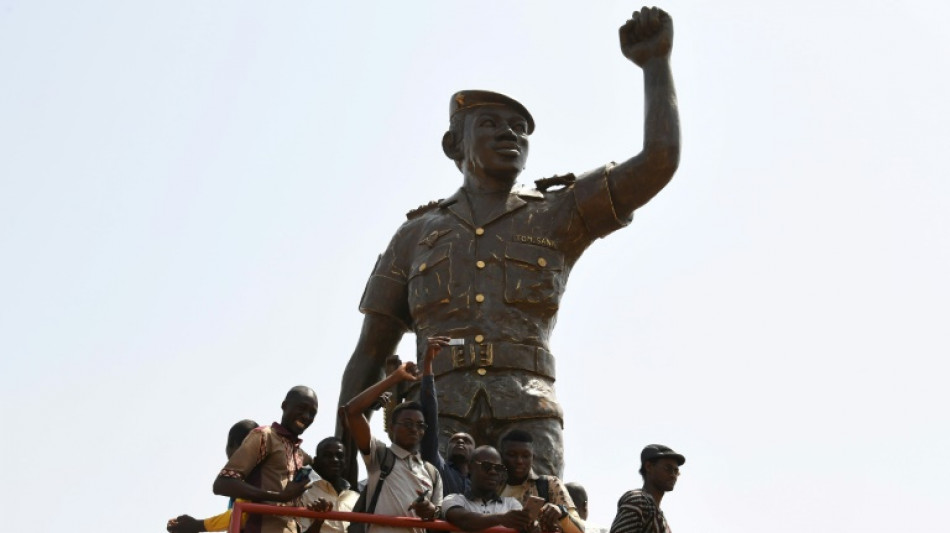

Verdict due in Burkina leader Sankara's 1987 assassination trial
A court in Burkina Faso will on Wednesday hand down the long-awaited verdict in the prosecution of 14 men accused of assassinating revolutionary leader Thomas Sankara, crowning a six-month trial marked by grim testimony and disrupted by a military coup.
Revered among pan-Africanist radicals, Sankara was an army captain aged just 33 when he came to power in a coup in 1983.
The fiery Marxist-Leninist railed against imperialism and colonialism, often angering Western leaders but gaining followers across the continent and beyond.
He and 12 colleagues were gunned down by a hit squad on October 15, 1987, at a meeting of the ruling National Revolutionary Council.
The massacre coincided with a coup that took Sankara's erstwhile comrade Blaise Compaore to power.
Throughout his 27-year reign, Compaore clamped a tight lid on the circumstances of Sankara's demise, fuelling speculation that he was the mastermind.
The historic trial into Sankara's death opened last October, more than 34 years after his death.
- Tried in absentia -
Prosecutors at a military court in the capital Ouagadougou have demanded a 30-year jail term for Compaore, who now lives in exile in neighbouring Ivory Coast.
Compaore is being tried in absentia on counts of attacking state security, concealing a corpse and complicity in a murder.
He denies the charges.
The prosecution is also seeking 30 years for Hyacinthe Kafando, who is suspected of having led the hit squad. Kafando, who later commanded Compaore's presidential guard, is also being tried in absentia.
It is calling for a 20-year sentence for Gilbert Diendere, one of the commanders of the army during the 1987 coup and the main defendant present at the trial.
He is already serving a 20-year sentence over an attempted military coup in 2015.
In its closing statement, the prosecution recounted in grim detail the day Sankara was killed.
As Sankara headed to the National Revolutionary Council meeting, "his executioners were already there," it said.
After Sankara entered the meeting room, the hit squad burst in, killing his guards, the prosecution said.
"The squad then ordered president Sankara and his colleagues to leave the room. They would then be killed one by one."
Ballistics experts told the trial Sankara had been shot in the chest at least seven times by assassins using tracer rounds.
But the defendants said the victims died in a botched attempt to arrest Sankara after he and Compaore fell out over the direction the country's revolution was taking.
- 'Asking for justice' -
The trial was briefly suspended after a coup on January 24 that deposed the elected president, Roch Marc Christian Kabore.
One of the world's poorest countries, Burkina has a long history of political turmoil, but was a relative oasis of peace until jihadist insurgents encroached from neighbouring Mali in 2015.
Their campaign has claimed some 2,000 lives and displaced some 1.8 million people.
The trial resumed after new military strongman Paul-Henri Sandaogo Damiba restored the constitution and swore an oath.
Compaore, who was deposed by a popular uprising in 2014, has boycotted what his lawyers dismiss as a "political trial."
Prosper Farama, the lawyer representing the Sankara family, said that, as the trial nears its end, the families were finally feeling some relief -- even though "during this trial, no-one confessed or repented. No-one!"
"We ask the court to give the families justice," he said. "We don't want revenge, we're simply asking for justice."
H.Gallo--IM




